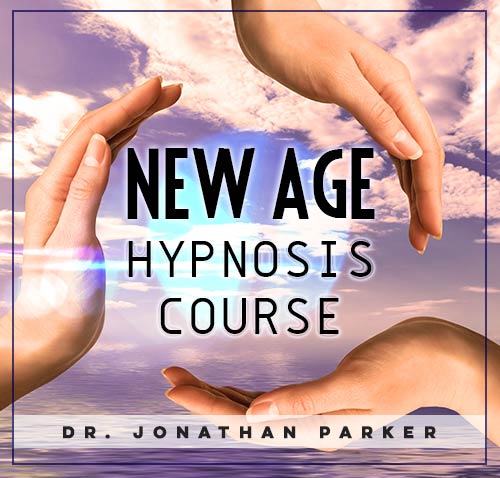Hypnosis for Deep Relaxation

Looking for more amazing products? Check out our online store and explore our collection here! Happy shopping!
Before diving in, please note: This post is for informational purposes only. If you’d like to know more about how we approach topics, feel free to check out our friendly Disclaimer Page.
Hey there, amazing readers! 
We’re committed to delivering quality posts, and your support (even just sticking around despite the ads) means everything to us. So, bear with us, and thanks for helping us keep the good vibes rolling. Now, on to the fun stuff!
TRANSLATE BUTTON AT THE END OF THE ARTICLE
What is Hypnosis for Deep Relaxation?
Hypnosis for deep relaxation is a therapeutic technique that aims to induce a state of profound calmness and relaxation through focused attention and suggestion.
During a hypnosis session, a trained hypnotherapist guides the individual into a heightened state of awareness, often referred to as a trance.
In this state, the subconscious mind becomes more receptive to positive suggestions, allowing for deep relaxation and stress relief.
Unlike what you might have seen in movies or stage shows, hypnosis for relaxation is a gentle and collaborative process that can help individuals manage anxiety, improve sleep quality, and promote overall well-being.
Understanding the Benefits of Hypnosis
The benefits of hypnosis for deep relaxation are numerous and can have a profound impact on both mental and physical health.
Some of the key benefits include:
Stress Reduction: Hypnosis can help individuals relax deeply, reducing stress levels and promoting a sense of calmness.
Improved Sleep: By inducing a state of relaxation, hypnosis can help individuals overcome insomnia and improve the quality of their sleep.
Anxiety Management: Hypnosis can be an effective tool for managing anxiety and reducing the symptoms associated with various anxiety disorders.
Pain Management: Hypnosis has been shown to help alleviate chronic pain and discomfort by altering the perception of pain in the brain.
Enhanced Mental Health: Hypnosis can promote mental clarity, focus, and emotional well-being, making it a valuable tool for overall mental health.
How Does Hypnosis Work?
Hypnosis works by accessing the subconscious mind and influencing thought patterns, beliefs, and behaviors.
During a hypnosis session, the hypnotherapist uses relaxation techniques to help the individual achieve a state of deep relaxation.
In this state, the conscious mind is quieted, allowing the subconscious mind to become more receptive to positive suggestions.
These suggestions can then help individuals reframe negative thought patterns, overcome limiting beliefs, and promote relaxation and well-being.
Hypnosis is a safe and natural state that most people can enter with the guidance of a trained professional.
The Role of Hypnotic Suggestions
Hypnotic suggestions are at the core of hypnosis for deep relaxation.
These suggestions are positive statements or affirmations that are tailored to the individual’s specific goals and needs.
By repeating these suggestions while the individual is in a hypnotic state, the hypnotherapist can help reprogram the subconscious mind and create lasting changes in behavior and thought patterns.
Hypnotic suggestions can be used to promote relaxation, boost confidence, improve sleep, and address a wide range of issues from stress management to weight loss.
Preparing for a Hypnosis Session
Before a hypnosis session for deep relaxation, it is essential to prepare yourself mentally and physically to get the most out of the experience.
Here are some tips to help you prepare for a hypnosis session:
Find a quiet and comfortable space where you won’t be disturbed during the session.
Wear loose, comfortable clothing to help you relax.
Set an intention for the session, whether it’s to reduce stress, improve sleep, or enhance overall well-being.
Be open-minded and willing to follow the guidance of the hypnotherapist.
Avoid consuming heavy meals or caffeine before the session, as they can interfere with relaxation.
What to Expect During a Hypnosis Session
During a hypnosis session for deep relaxation, you can expect to be guided into a state of deep relaxation by the hypnotherapist.
The process typically involves the following steps:
Induction: The hypnotherapist will guide you into a state of relaxation through calming techniques such as deep breathing or visualization.
Deepening: You will be led deeper into relaxation through progressive relaxation techniques, allowing you to reach a heightened state of awareness.
Suggestions: The hypnotherapist will then introduce positive suggestions tailored to your goals, such as promoting relaxation, reducing stress, or improving sleep.
Re-emergence: At the end of the session, the hypnotherapist will guide you back to full awareness, feeling refreshed and relaxed.
Techniques Used in Hypnosis for Relaxation
There are various techniques used in hypnosis for deep relaxation, each designed to induce a state of profound calmness and well-being.
Some common techniques include:
Progressive Muscle Relaxation: This technique involves tensing and relaxing each muscle group in the body, helping to release physical tension and promote relaxation.
Visualization: Guided imagery and visualization techniques can help individuals create mental images of peaceful and calming scenes, promoting relaxation and stress relief.
Breathing Exercises: Deep breathing techniques can help individuals relax the mind and body, reducing stress and promoting a sense of calmness.
Positive Affirmations: Repeating positive affirmations during hypnosis can help individuals reframe negative thought patterns and promote relaxation and well-being.
Common Myths About Hypnosis Debunked
There are several misconceptions surrounding hypnosis that can deter individuals from exploring its benefits for relaxation.
Let’s debunk some of the common myths about hypnosis:
Myth: Hypnosis is mind control.
- Reality: Hypnosis is a collaborative process where individuals are in control and can resist suggestions that go against their values.
Myth: Only gullible people can be hypnotized.
- Reality: Most people can be hypnotized to some degree, as long as they are willing and open to the process.
Myth: You can get stuck in hypnosis.
- Reality: Hypnosis is a natural state that individuals can emerge from at any time, just like waking up from a nap.
Myth: Hypnosis is a form of sleep.
- Reality: While hypnosis may induce a state of relaxation similar to sleep, individuals remain aware and responsive during the session.
Potential Risks and Side Effects
Hypnosis for deep relaxation is generally considered safe when conducted by a trained and qualified hypnotherapist.
However, like any therapeutic technique, there are potential risks and side effects to be aware of:
False Memories: In rare cases, hypnosis may lead to the creation of false memories or distortions of reality.
Intensification of Symptoms: In some individuals, hypnosis may intensify underlying psychological symptoms or conditions.
Emotional Release: Hypnosis can sometimes trigger emotional responses or intense feelings that may require further processing.
Drowsiness: Some individuals may experience drowsiness or grogginess after a hypnosis session, which typically dissipates quickly.
Incorporating Hypnosis into Your Routine
To reap the benefits of hypnosis for deep relaxation, consider incorporating it into your routine as a regular practice.
Here are some tips for integrating hypnosis into your daily life:
Schedule regular hypnosis sessions with a qualified hypnotherapist to maintain consistency and track your progress.
Practice self-hypnosis techniques at home to promote relaxation and stress relief on your own.
Use audio recordings or guided hypnosis scripts to supplement your sessions and enhance the relaxation process.
Set specific goals for each hypnosis session, whether it’s reducing stress, improving sleep, or enhancing overall well-being.
Finding a Qualified Hypnotherapist
When seeking a hypnotherapist for deep relaxation, it is crucial to find a qualified professional with the necessary training and experience.
Here are some tips for finding a reputable hypnotherapist:
Look for a hypnotherapist with certification from a recognized hypnotherapy organization, such as the American Society of Clinical Hypnosis or the National Guild of Hypnotists.
Ask for recommendations from trusted sources, such as healthcare providers, friends, or family members who have had positive experiences with hypnotherapy.
Inquire about the hypnotherapist’s experience, training, and areas of expertise to ensure they are a good fit for your needs.
Trust your instincts and choose a hypnotherapist who makes you feel comfortable, safe, and supported during the sessions.
Exploring Other Relaxation Techniques
In addition to hypnosis, there are various other relaxation techniques that you can explore to promote calmness and well-being in your life.
Some alternative relaxation techniques include:
Meditation: Practicing mindfulness meditation can help quiet the mind, reduce stress, and promote relaxation.
Yoga: Engaging in yoga practices can help release physical tension, improve flexibility, and promote relaxation.
Tai Chi: This gentle martial art combines movement and meditation to promote relaxation, balance, and overall well-being.
Aromatherapy: Using essential oils and scents to create a calming environment can help reduce stress and promote relaxation.
Conclusion
In conclusion, hypnosis for deep relaxation is a powerful therapeutic technique that can help individuals manage stress, improve sleep, and enhance overall well-being.
By understanding the benefits of hypnosis, how it works, and what to expect during a session, you can make an informed decision about incorporating hypnosis into your routine.
Remember to debunk common myths about hypnosis, be aware of potential risks and side effects, and seek out a qualified hypnotherapist for guidance.
Whether you choose hypnosis, meditation, yoga, or other relaxation techniques, prioritizing relaxation and self-care can have a profound impact on your mental and physical health.

The Enlightenment Journey is a remarkable collection of writings authored by a distinguished group of experts in the fields of spirituality, new age, and esoteric knowledge.
This anthology features a diverse assembly of well-experienced authors who bring their profound insights and credible perspectives to the forefront.
Each contributor possesses a wealth of knowledge and wisdom, making them authorities in their respective domains.
Together, they offer readers a transformative journey into the realms of spiritual growth, self-discovery, and esoteric enlightenment.
The Enlightenment Journey is a testament to the collective expertise of these luminaries, providing readers with a rich tapestry of ideas and information to illuminate their spiritual path.
Our Diverse Expertise
While our primary focus is on spirituality and esotericism, we are equally passionate about exploring a wide range of other topics and niches 

To ensure we provide the most accurate and valuable insights, we collaborate with trusted experts in their respective domains 
Our blog originally focused on spirituality and metaphysics, but we’ve since expanded to cover a wide range of niches. Don’t worry—we continue to publish a lot of articles on spirituality! Frequently visit our blog to explore our diverse content and stay tuned for more insightful reads.
Hey there, amazing reader! 
Check out our store here and take a peek at some of our featured products below! Thanks for being awesome!












